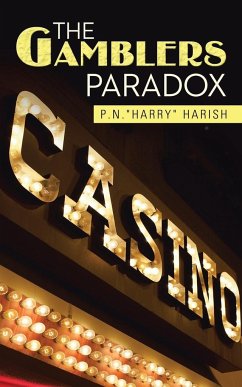
The Gamblers
Versandkostenfrei!
Versandfertig in 1-2 Wochen
17,99 €
inkl. MwSt.
Weitere Ausgaben:

PAYBACK Punkte
9 °P sammeln!
The Gambler is a novel written by the Russian author Fyodor Dostoevsky. It was first published in 1867 and is one of Dostoevsky's shorter works compared to some of his more famous novels like "Crime and Punishment" and "The Brothers Karamazov." The Gambler is a semi-autobiographical work that explores themes of addiction, obsession, and the destructive nature of gambling. The story is set in a fictional German town and revolves around the character Alexei Ivanovich, a tutor and the narrator of the novel. Alexei becomes embroiled in a turbulent and emotionally charged relationship with Polina, ...
The Gambler is a novel written by the Russian author Fyodor Dostoevsky. It was first published in 1867 and is one of Dostoevsky's shorter works compared to some of his more famous novels like "Crime and Punishment" and "The Brothers Karamazov." The Gambler is a semi-autobiographical work that explores themes of addiction, obsession, and the destructive nature of gambling. The story is set in a fictional German town and revolves around the character Alexei Ivanovich, a tutor and the narrator of the novel. Alexei becomes embroiled in a turbulent and emotionally charged relationship with Polina, a young woman he tutors. Their complicated relationship is further complicated by the presence of "The General," an older, wealthy Russian who also pursues Polina. The novel delves into the psychology of addiction, particularly gambling addiction, and its impact on individuals and relationships. Dostoevsky, who himself struggled with gambling, draws on personal experiences to depict the protagonist's descent into the world of casinos and the emotional turmoil that ensues. The novel offers a gripping and psychologically intense exploration of human frailty and the destructive power of compulsive behaviour.














